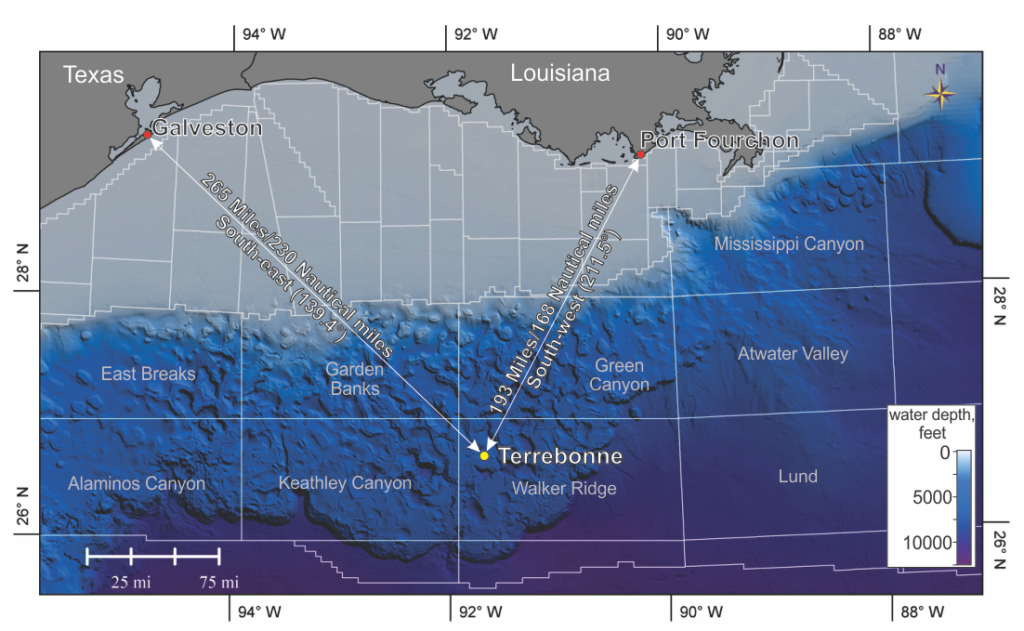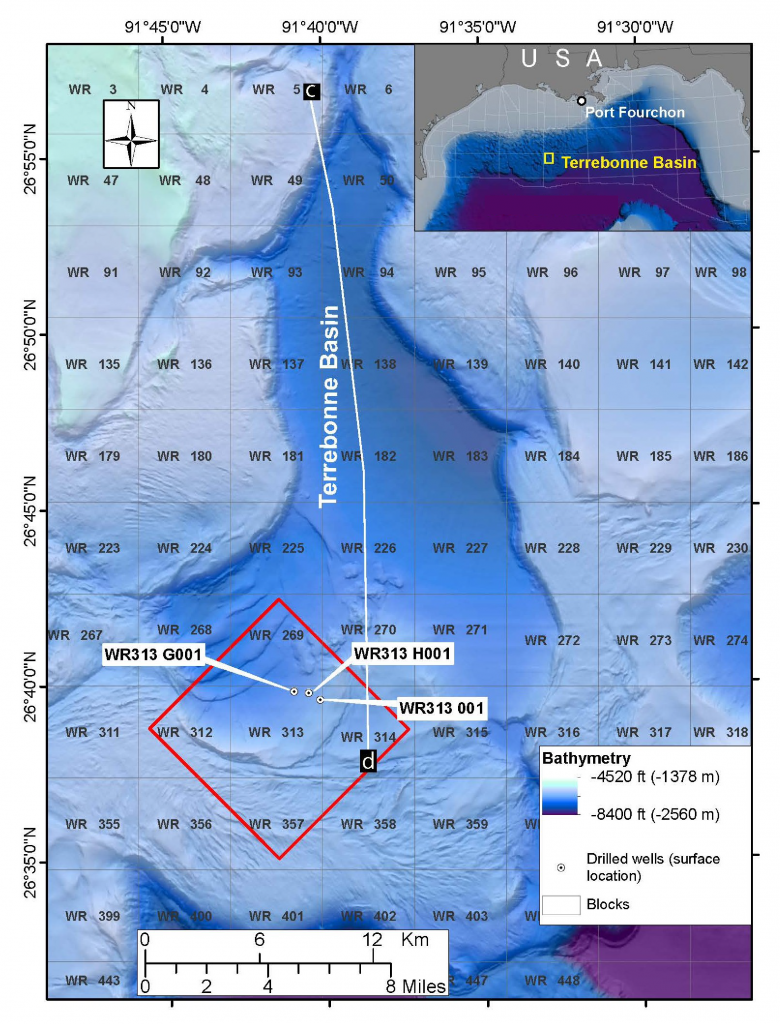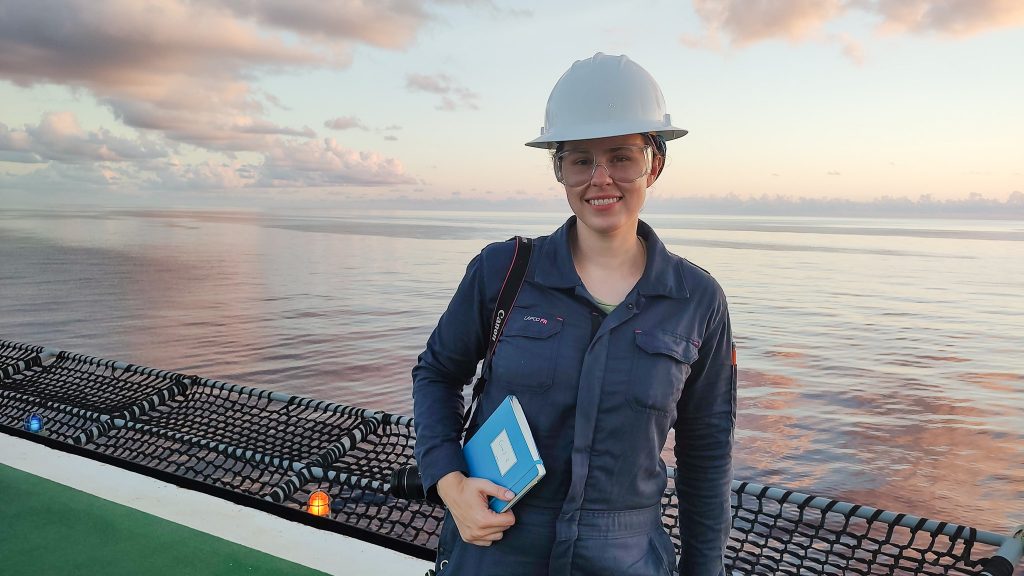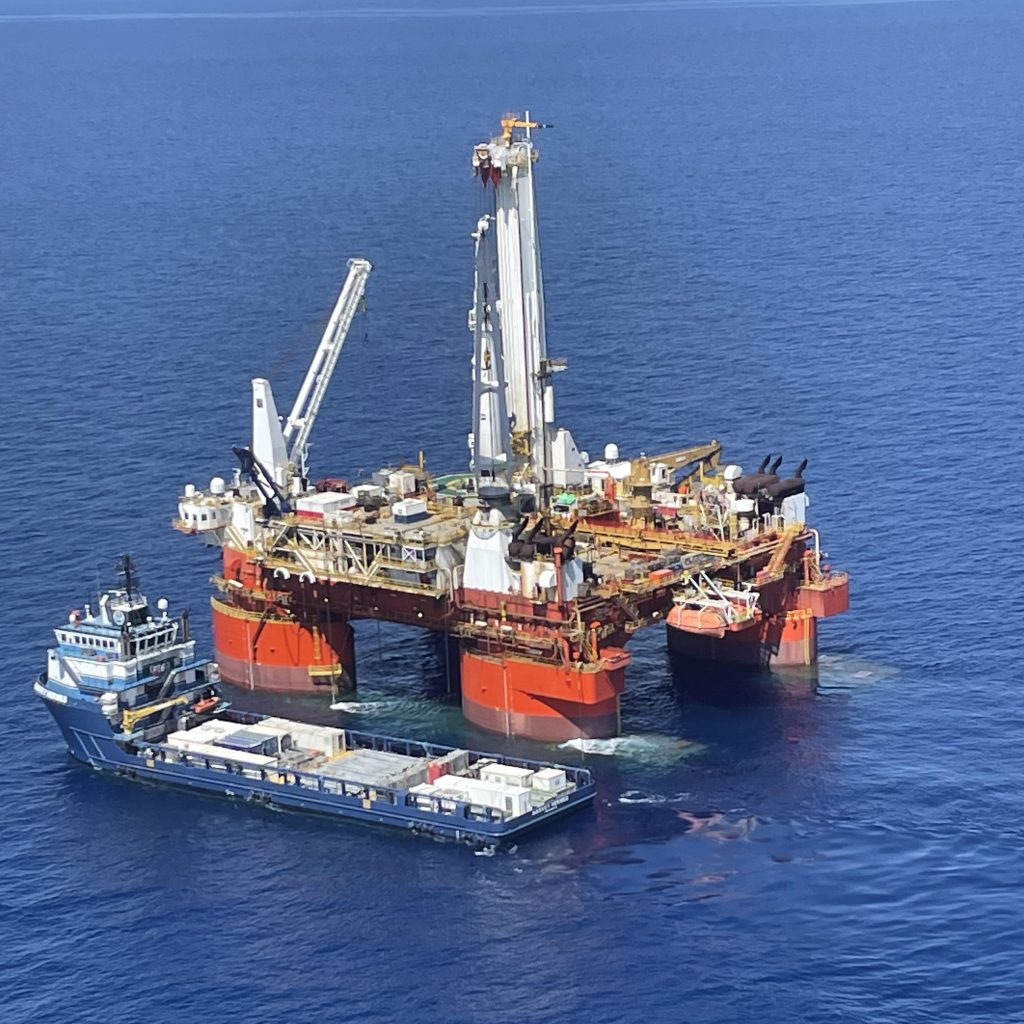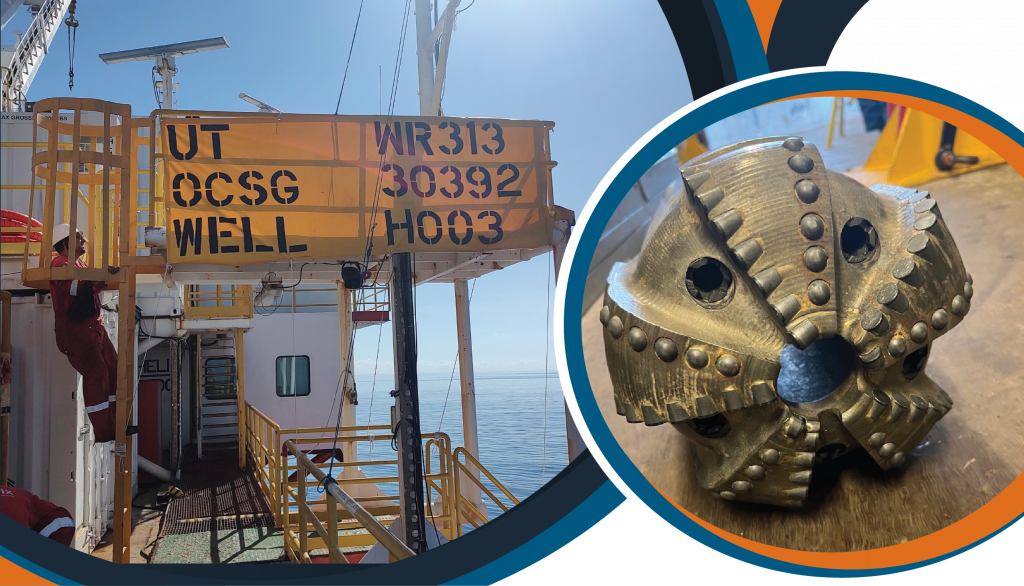
Location: Terrebonne Basin
Sites: WR313 H002 and WR313 H003
Dates: July 30 to September 28, 2023
Chief Scientist: Peter Flemings
Sponsor: U.S. Department of Energy
Expedition UT-GOM2-2 Summary Abstract
In the summer and fall of 2023, the University of Texas (UT) Deepwater Hydrate Coring Expedition (UT-GOM2-2) drilled, cored, made downhole measurements, and analyzed samples from the seafloor to the base of the gas hydrate stability zone at Site H, in the Walker Ridge Protracted Area Block 313 (Site H, WR313), in the Terrebonne Basin, deepwater Gulf of America (Gulf of Mexico).
Analyses of data and samples from the expedition will inform biological, geochemical, and geomechanical models to constrain the role of gas hydrates in the carbon cycle and the potential for gas hydrates as an energy resource. Pressure and conventional cores were collected continuously to a depth of 155.1 meters below the seafloor (mbsf). At deeper depths, cores were taken periodically from hydrate-bearing sands and their bounding muds to a total depth of 861.3 mbsf. 162.6 m of conventional core and 54.8 m of pressure core were recovered.
Twelve temperature measurements were made between 27.1 and 144.5 mbsf to determine the geothermal gradient. At the seafloor, more than 4 m of sandy silt of unknown origin was encountered. Beneath this sand, to a depth of about 200 mbsf, the section was composed of interbedded mud and biogenic carbonate ooze. The ooze correlated to low density and high porosity intervals observed in the previously acquired logging while drilling (LWD) data and as measured. These ooze intervals also correspond to lighter sediment color, increased Ca content based on X-ray florescence (XRF) core scanning, and increased calcareous nannofossil abundance. Calcareous nannofossil biostratigraphy constrains the entire record to the Pleistocene (< 0.91 million years), with a pronounced increase in sedimentation rate with depth. Below 200 mbsf, the section was predominantly composed of mud with two thicker, hydrate-bearing coarse-grained intervals, which are commonly known as the Blue and Orange sands.
The dissolved gas concentration was quantified from pressure cores. In the shallow section, dissolved methane concentration increased below the sulfate-methane transition zone (SMTZ) and reaches saturation (the limit of solubility for methane) at 147 mbsf. Gas expansion was very common in conventional and depressurized pressure (conventionalized) cores below the SMTZ.
At deeper depths, the methane concentration within muds bounding the Blue and Orange reservoirs was generally found to be less than saturation. Th dissolved and hydrate gas composition is consistent with a microbial source, containing greater than 99.99% methane and only trace concentrations of ethane, propane, and butane. The methane to ethane ratio (C1/C2) and the methane to ethane plus propane (C1/(C2+C3)) decrease with depth down to at least 678 mbsf, mainly driven by the increase in ethane with depth. It is unclear if this trend continues through the Orange sand interval. The δ13C isotopic signature of methane ranges between -69.9 and -78.5 ‰ relative to the Vienna Pee Dee Belemnite (VPDB) standard.
Pressure core recovery in sandy intervals was poor. However, pressure core logs of the Orange sand show intervals of low density and high velocity, which are indicative of high hydrate saturation. One pressure core was degassed and the average hydrate saturation in the core was determined to be 24%. One core from within the Orange sand was composed of interbedded graded sandy silt and mud. The sandy silts from this core are composed of mainly quartz and feldspar with some lithics. Most of the recovered pressure core samples are maintained at near in-situ pressure and temperature (within the hydrate stability field) at the University of Texas Pressure Core Center awaiting analysis.
In the shallow section, samples will be used to determine the flux of organic carbon through the basin system, find the rate at which that carbon was consumed, and understand the microbial population responsible for these processes. In the deeper section, samples from in and around the hydrate reservoirs will be used to determine the petrophysical properties of the reservoir and bounding seals in these systems.
Expedition Report Links
Blog and Photo Gallery
Jackson School Science Writer Monica Kortsha and videographer Drew Ott joined the team to document the expedition and tell the story.
Media Inquiries
If you are a member of the media looking for more information on the expedition, please contact:
Anton Caputo
Director of Communications, UT Jackson School for Geosciences
Email: anton.caputo@jsg.utexas.edu
Office: (512) 232-9623

